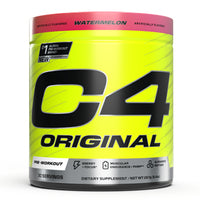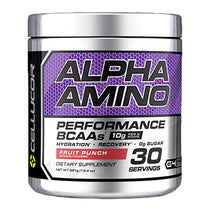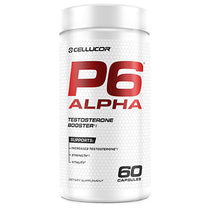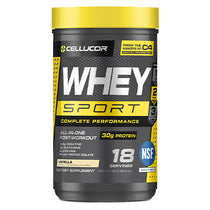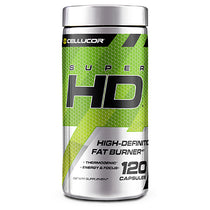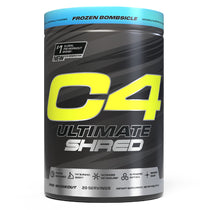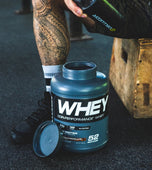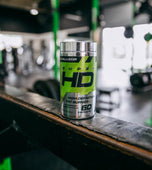 We all know that foggy and cloudy feeling when we space out during important times.
We all know that foggy and cloudy feeling when we space out during important times.
Whether it’s in class or at your girlfriend’s family dinner, you find your mind wandering and your ability to focus vanishes.
Looking for a way to boost your brain health along with your concentration?
Let’s take a look at 4 of the best and easiest ways to increase memory, improve focus, and enhance overall brain function.
1. Meditation
First way to boost that brain is to relax.
If you’re still in the camp that thinks meditation is weird and something only hippies do, you’re one of the few.
Science has been revealing a number of incredible benefits about meditation including reduced anxiety and depression while boosting your cognitive function. A study published in Consciousness and Cognition demonstrated that subjects who underwent mindfulness training and practice showed improvements in memory, visuo-spatial processing, and cognitive functioning. (1-3)
No, you don’t have to suit up in a monk’s uniform and shave your head. Performing focused breathing exercises for just 10 minutes each day is enough to enjoy the benefits mentioned above.
Not sure where to start? There are a number of free YouTube instructional videos as well as free apps for your phone.
2. Intermittent Fasting
Abstaining from eating… Sounds great, right?
Just like with meditation, fasting has become a popular trend in the world of health and fitness. Thanks to science and a number of fascinating studies, fasting is getting the scientific backing that it deserves.
During intermittent fasting, your body turns to stored fat for its energy needs. This puts the body in a state of ketosis and the resulting ketones have been shown to protect memory and cognitive functioning. (4)
What’s more, intermittent fasting can help to protect your brain from diseases such as Alzheimer’s and dementia. (5)
Lastly, intermittent fasting boosts Brain-Derived NeuroTrophic Factor (BDNF) levels. Why’s that important? Higher levels of BDNF are associated with better brain health and function as it improves neurons and better communication between cells. (6)
The most popular way to do intermittent fasting is the 16 / 8 rule.
You fast for 16 hours each day and then you have an 8-hour feeding window. Most people begin their fast at 8 p.m. the night before and end at 12 p.m. the next day.
For example, let’s say you start on a Monday, your eating schedule would look like this:
Monday – 8 p.m.
- Stop eating
- Water, tea, and black coffee is allowed
Tuesday – 12 p.m.
- Begin your 8-hour feeding window
- Follow your usual diet
Tuesday – 8 p.m.
- Stop eating
3. Nootropic Supplements
Supplementation has radically changed both the fitness and lifestyle industries.
Taking supplements is almost expected and it’s strange if someone says they aren’t using one. You don’t need to be a gym junkie to benefit from a supplement as is the case with nootropics.
Nootropics are those ingredients that specifically increase concentration, boost memory, and facilitate better learning.
Some quality nootropic ingredients include: N-Acetyl-L-Tyrosine, AlphaSize® Alpha-GPC, and Huperzine A. You can find all three of these ingredients in C4 Ultimate. C4 Ultimate delivers energy you can feel, powerful pumps, muscular endurance, extreme focus, and peak performance.*
- N-Acetyl-L-Tyrosine: A more soluble form of L-tyrosine, NALT plays a role in supporting mental and cognitive health during stressful activities like physical training.*
- AlphaSize® Alpha-GPC: A patented and clinically studied form of choline, AlphaSize® may support increased focus, which can contribute to a strong mind-muscle connection in the gym.
- Huperzine-A: Huperzine A is a nootropic ingredient that supports memory, learning, and concentration.*
4. Exercise
Probably not surprised to see this on here, are you?
Science has well established that exercise is a necessary thing if you want to live a long life at optimal health. What’s more, exercise is extremely important when it comes to the health of your brain.
Exercise has been shown to improve memory, boost cognitive function, and alleviate stress.
Remember those growth factors that I mentioned above?
Well, when you exercise, those same growth factors are released and that triggers the growth of new and stronger brain cells.
Taking this a step further: Exercise can also improve your sleeping patterns.
When you get more time in R.E.M. or the deepest level of sleep, you will be decreasing stress and anxiety while increasing repair and recovery hormones.
More sleep, a healthier brain, and bigger muscles: Not too shabby, right? (10)
References
- Hoge, E. A., E. Bui, L. Marques, C. A. Metcalf, L. K. Morris, D. J. Robinaugh, J. J. Worthington, M. H. Pollack, and N. M. Simon. "Randomized Controlled Trial of Mindfulness Meditation for Generalized Anxiety Disorder: Effects on Anxiety and Stress Reactivity." The Journal of Clinical Psychiatry. U.S. National Library of Medicine, Aug. 2013. Web. 09 June 2017.
- Segal, Z. V., Williams, J. M. G. & Teasdale, J. T. (2012). "Mindfulness-Based Cognitive Therapy for Depression" (2nd ed.). New York: The Guilford Press.
- Zeidan, F., S. K. Johnson, B. J. Diamond, Z. David, and P. Goolkasian. "Mindfulness Meditation Improves Cognition: Evidence of Brief Mental Training." Consciousness and Cognition. U.S. National Library of Medicine, June 2010. Web. 09 June 2017.
- Collier, Roger. "Intermittent Fasting: The Science of Going without." CMAJ : Canadian Medical Association Journal. Canadian Medical Association, 11 June 2013. Web. 09 June 2017.
- Heilbronn, Leonie K., and Eric Ravussin. "Calorie Restriction and Aging: Review of the Literature and Implications for Studies in Humans." The American Journal of Clinical Nutrition. N.p., 01 Sept. 2003. Web. 09 June 2017.
- Li, Liaoliao, Zhi Wang, and Zhiyi Zuo. "Chronic Intermittent Fasting Improves Cognitive Functions and Brain Structures in Mice." PLOS ONE. Public Library of Science, 3 Jan. 2013. Web. 09 June 2017.
- Sun QQ1, Xu SS, Pan JL, Guo HM, Cao WQ. Huperzine-A capsules enhance memory and learning performance in 34 pairs of matched adolescent students. Zhongguo Yao Li Xue Bao. 1999 Jul;20(7):601-3.
- Hye-Bin Yeo, Ho-Kyoung Yoon, Heon-Jeong Lee, Seung-Gul Kang, Ki-Young Jung, and Leen Kim. Effects of Korean Red Ginseng on Cognitive and Motor Function: A Double-blind, Randomized, Placebo-controlled Trial. J Ginseng Res. 2012 Apr; 36(2): 190–197. doi: 10.5142/jgr.2012.36.2.190.
- Seidl R, Peyrl A, Nicham R, Hauser E. A taurine and caffeine-containing drink stimulates cognitive performance and well-being. Amino Acids. 2000;19(3-4):635-42.
- Godman, Heidi. "Regular Exercise Changes the Brain to Improve Memory, Thinking Skills." Harvard Health Blog. N.p., 29 Nov. 2016. Web. 09 June 2017.
About David Sautter
David Sautter is a NASM certified personal trainer, NASM certified fitness nutrition specialist, fitness workshop leader, and health and fitness writer who has been featured in NoTimeWheysted, Kutting Weight, and Workout Labs. With over 12 years of experience, David has been the driving creative force behind numerous fitness-related e-books, training guides, articles, and supplement research. You can discover more of his work at his website: WriteOnSautter.com.
